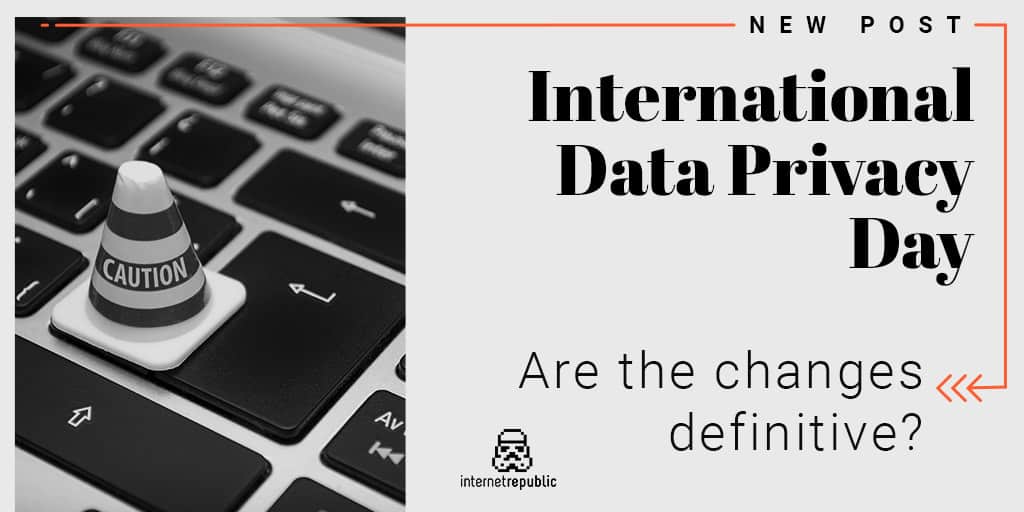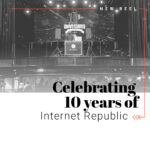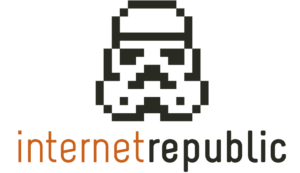
DATA PRIVACY DAY !
Every January 28th, since 2007, a date promoted by the Council of Europe, we celebrate International Data Protection Day. This celebration occurs to raise awareness and promote better practices regarding privacy and protection of user information on the Internet.
In 2018, the European Union launched the General Data Protection Regulation, known as GDPR, whose purpose is to protect the processing of people’s data and the free flow of personal data. This regulation brought transparency into the process of collecting user data by companies. Today, all users must know how their data will be used on each website they visit.
This fight for privacy creates limits, and it’s in 2020 when the European justice cancels the Privacy Shield and declares that data cannot be transferred from European servers to U.S. servers. This decision was made because the United States does not guarantee transparency or the level of protection required by the GDPR.
The new policy directly affects large companies such as Facebook and Google that have deliberately violated these rules in recent years. So far, Austria has declared the use of Google Analytics as illegal, precisely for non-compliance with the GDPR and it could lead to a hefty fine and a ban on its use in its territory.
This decision by Austria could create a domino effect and generate a cascade of similar decisions by the rest of the member states regarding the use of Google’s most used statistics tool if every court considers the sentence in the same way, as they are bound by the same regulations.
These rules have a direct impact on cookies, especially those that affect third parties. Browsers such as Safari or Firefox reacted quickly by removing them from their systems. Google was the last to announce, last year, that during 2022 it was going to make these third-party cookies disappear progressively. This brings us to this new stage called ‘cookieless’.
These cookies are text files on which much digital advertising is based, i.e. they contain information about users that allow you to accurately target advertising and deliver personalized experiences. This doesn’t mean that you won’t be able to collect more information, but that you will have to connect with visitors in new and innovative ways.
👉🏽Cookie: A cookie is a small piece of text that is stored in a user’s browser when visiting a website.
👉🏽First-party cookie: it is inserted by the same website that the user visits. It allows the browser to remember user information such as purchase intentions, logins, and language preferences.
👉🏽 Third-party cookies: these are created by different websites than the one the user is visiting, such as advertisers’ websites and social networks. They are used for tracking, retargeting, and online advertising purposes.
Much of Google’s revenue comes from digital advertising, so third-party cookies have been a very important system in its business model. Last year, Google presented, unsuccessfully, an alternative system that allowed identifying users’ preferences and kept their privacy safe. The so-called ‘Federated Learning of Cohorts’ (FLoC) did not get very far because some industry players spoke out against it, leading to an investigation by the European Commission.
In this continuing uncertainty, Google proposes Topic, replacing FloC and as an alternative to end cookies.
This new tool will work through each user’s browsing history, it will retrieve your search data for up to three weeks and will allow your browser to select your top topics of interest during the week based on your browsing habits and create a “Top of topics” from which it will provide random themes to the advertising platforms of the pages visited. This way, ads will appear directly matched to your interests during the last period.
Google assures us that this new system is much more transparent and gives the user control over the data, since you will be able to view and delete the topics you don’t like and even disable the “Google Topic” function completely.
Do you want to take a look at how this new system works? Check out the next videos ⤵️
Will it be a decisive change? 🤔
Artículos relacionados
Internet República
Latest posts by Internet República (see all)
- New Instagram update: reel achievements - 19 October, 2023
- Elon Musk has bought Twitter. What does this mean? - 27 April, 2022
- NFTs ARE ARRIVING ON SOCIAL MEDIA - 21 February, 2022






